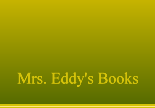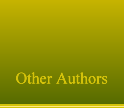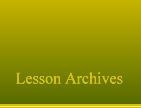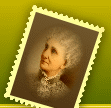|
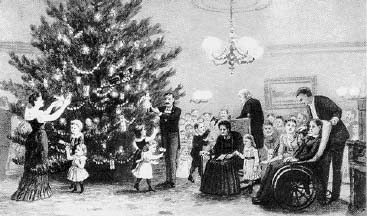
CHRISTMAS EVE
Picture Number 4
Thus Christ, eternal and divine,
To
celebrate
As Truth demands, this living Vine
Ye demonstrate.
For heaven's CHRISTUS, earthly
Eves,
By Adam bid,
Make merriment on Christmas eves,
O'er babe and
crib.
Scriptural basis:
The tabret, and
pipe and wine, are in their feasts:
but they regard not the work of
the Lord,
neither consider the operation of His hands. -
Isaiah
Man that is born of a
woman
is of few days, and full of trouble. - Job
Since you, dear reader, are Mind, Spirit, Soul in
other words, since you are Principle you are destined to express only Life,
Truth and Love. Each individual has both the masculine and feminine qualities.
Every picture of Christ and Christmas shows this.
This fourth picture, "Christmas Eve" with its crowded,
artificial setting and frenetic festivity, presents a marked contrast to the
next, the fifth picture, "Christmas Morn," where two angels as one divine being
float in serene rapture over a quiet landscape at sunrise.
While picture five presents the dawning Truth, this
fourth picture depicts the mortal seeming the illusion, or what hypnotism
suggests is real. It shows the errors Mrs. Eddy came to free us
from. Note the aged, the infants, the cripples, the invalid in a wheel chair.
Note the artificial light; the focus on getting, rather than
giving.
The birth of the Christ in our consciousness does
not take place as "earthly Eves by Adam bid make merriment on
Christmas Eve o'er babe and crib." Even in the midst of their celebration, the
revelers find, "Man that is born of a woman is of few days and full of
trouble." "The tabret and pipe and wine are in their feasts..." and yet each
one longs for the glorious annunciation the invitation of the Christian Science
hymn, "O rest beside the weary road, and hear the angels sing....For lo the
days are hast'ning on...[when] the whole world [will] send back the song which
now the angels sing."
ALICE ORGAIN:
The first Scriptural "basis" of this portion of the
poem describes the formal commemoration of Jesus' birth without spiritual
quickening. In this picture the tree is lopped off at the top and so points to
nothing, neither is there the symbolic star in the tree top, to signify a
higher conception than the emotional pleasure of those present suggests. Above
all, there is no light of star, typing a spiritual source of life, shining from
without. Those participating in this commemoration with the exception of the
woman in the wheel chair [which could represent Mrs. Eddy at the time when her
students turned against her] and the man in the extreme left, with his back
turned on the festivities fail to see "the operation of His, God's, hands."
They fail to see the spiritual idea behind the symbols of "the work of the
Lord." They fail to see the Christ as the "living Vine," which must be
lived rather than commemorated.
Dead rites, offered in place of this "living Vine,"
have shut out (invalidated) the Christ as the Spirit of Womanhood, and rejected
the form of true manhood, "typed" by the woman in an invalid's chair and by the
man standing behind the tree. This "typical" woman and man are clothed in the
black "sackcloth" of duality and rejection, as prophesied of the "two
witnesses" in Revelation 11:3.
Mrs. Eddy defines these "two witness" as "Christ Jesus
and Christian Science" (My. 347:1) The Christ in its first and second
appearing. The Christ's first appearing witnesses to the manhood of God. The
Christ's "second appearing" "the spiritual advent of the advancing idea of God,
as in Christian Science"(Ret. 70:20) witnesses to the womanhood of
God.
The witness of manhood, to human sense, is that of
self-denial, cross-bearing, persecution "for righteousness' sake," suffering,
and crucifixion, epitomized in Jesus' mission. It's method was declared by
Jesus as "Get thee behind me, Satan" (Matt. 16:23). The witness of womanhood is
of the forever allness of good and the perfection of man. Its method is that of
facing and redeeming all human problems by spiritually discerning their
underlying realities. It declares of even humanhood, "The more I understand
true humanhood, the more I see it to be sinless, as ignorant of
sin as is the perfect Maker" (Un. 49:8).
The invalid woman in this picture is not only detached
from her surroundings, but from her manhood as well.
This picture corresponds to the second edition of
Science and Health, [just as picture three corresponded to the first
edition.]
In the first edition of Science and Health Mrs. Eddy
had revealed the manhood of her own consciousness as separated from her
womanhood. In this fourth picture she seeks to recover her initial vision of
Womanhood in order to preserve her distinctive mission, which static
Christianity, her students' lack of understanding, unwittingly seeks to
slay.
Despite Mrs. Eddy's denunciation of church in the
first edition of Science and Health, she had heard the cry of her followers,
"Nay; but a king [a church] shall reign over us" (I Sam. 12:12). Hearing their
need, in 1876 Mrs. Eddy and six of her students formed the Christian Scientist
Association (later called the Massachusetts Metaphysical College Association)
upon which to base a church, and in 1879, with twenty-six of her students, she
formed, in Lynn, Massachusetts, the first (sustained) organization of the
Christian Science Church "to commemorate the word and works of Jesus,
which should reinstate primitive Christianity and its lost element of healing"
(Manual p.17).
Mrs. Eddy was forced to found the first organization
of church upon the Christian outer commemoration of "the word and works" of
Jesus in his first coming, because her student's lives were not yet attuned to
his "second appearing...as in Christian Science," which demanded an inner
consciousness of Truth. But because it was founded on this outer commemoration,
the more Mrs. Eddy, in her preaching and teaching, poured into it the treasures
of Truth and Love of Jesus' "second appearing," the darker the "church" grew,
and the more its actions reflected only commemoration rather than demonstration
of the "living Vine," or "Christ-idea."
This fourth picture makes "Christ" the subject of its
first corresponding verse, and makes "mortal thought" the subject of its second
verse, thus showing the conflict between Mrs. Eddy's thought and that of the
first organization of the Boston church, established and founded on Jesus. The
confusion on the face of the woman in the wheel chair, and her detachment from
the festivities, illustrate this conflict between the "Christ" in the first
verse of the poem accompanying this picture, and the commemoration of the birth
of Jesus in the second verse.
During the writing of the second edition the male
element tried to wrest Science and Health from Mrs. Eddy, and take credit for
it. Here, in this picture and the events it references, we see the conflict of
personalities. Man and woman, in reality, are one; each has ALL
the divine qualities. Therefore they cannot remain two without forever
warring.
At this period the struggle between Mrs. Eddy and the
men in her cause was so great as to seemingly almost wreck the Movement. One
student stole the entire proceeds from the first edition of Science and Health,
leaving Mrs. Eddy no funds to release her new revision of Science and Health,
then at the press. Another plagiarized over thirty pages of Science and Health,
forcing a lawsuit to establish Mrs. Eddy's copyright. Another man, also her
student, brought a lawsuit against her for all his personal services in the
interest of the Movement.
Another man started a conspiracy involving men
students, which resulted in the arrest of Mrs. Eddy's husband, Dr. Eddy, who
was accused of murdering a student, while the man who was the alleged victim
was in hiding to insure the success of the conspiracy.
As men in the movement were trying to take credit for
what Mrs. Eddy had discovered, a Christian Science Journal article,
entitled "Our Place," thought to be by Mrs. Eddy, provided a thoughtful
response:
I believe that God has given to every one a place, and
in this harmonious creation there is no void, nothing left out, nothing
lacking, some may as well try to breathe without air, or think without mind, as
to think we can rotate out of the divine order of being, or take any place
other than our own. Others may try to usurp us; they may try to be like us;
they may move earth, and apparently heaven, to gain our position; but when God
has placed us there, we are there, and naught can move us out of this, our
rightful inheritance.
If this were understood, many warfares would cease:
envy and jealousy be exchanged for the peaceful gleams of joy and gratitude;
and, mingling with the light of love, would bring man new health and happiness,
yea, Life immortal.
We never see the stars vieing [sic] for each other's
places, nor the sun and moon at variance; nor have we seen a Paul take a
Peter's place, or John the place of our Master, or vice versa. Each
fills its own, her own, his own place, whether they have knowledge of it or
not; and I, for one, would be content in the sweet consciousness that I have a
place with Thee, eternal Love; and however grand or great, humble or small, I
am of Thy creation; therefore thine. Pioneer
(Based on S&H vii:22 [which reads: "Future ages
must declare what the pioneer has accomplished."] I would say
that "Pioneer" is the pen name in this case for Mary Baker Eddy Schult).
Mrs. Eddy had found that when she revealed the manhood
of her own consciousness in the first edition of Science and Health, thereby
dividing her manhood from her womanhood, she had not succeeded in placing her
own manhood in control over "church" consciousness. Instead she unwittingly had
allowed the imperfect manhood of her "church's" consciousness to take over, a
consciousness which had no vision of womanhood, other than as under the mastery
of man.
The mission of Christ and Christmas is to lift
Christianity into Science. Woman [the Christ], alone, revealed the Principle
[Love] by which evil could be ruled out of man's consciousness as unreal. "God
never said that man would become better by learning to distinguish evil from
good, but the contrary, that by this knowledge, by man's first disobedience,
came 'death into the world, and all our woe'" (Un. 14:27).
Ultimately Mrs. Eddy, like Jesus, was forced to ascend
above earth (manhood) in order to escape the "ecclesiastical despotism" which
had crucified Jesus. She heard a voice from heaven saying, "Come up hither"
(Rev. 11:12), and the "two witnesses," the manhood and womanhood of her own
consciousness, ascended together (as presented by the two angelic figures in
the fifth picture) to the consciousness of "the temple of God [which] was open
in heaven" (Rev. 11:19) as presented in the sixth picture.
HANNA?:
The cornerstone of the original Mother Church was laid
in the evening and Mrs. Eddy tells us that this original edifice is the
"cross." The extension had its corner stone laid in the morning and is a symbol
of the crown. [It signifies the extension of Mary Baker Eddy's teaching into
all the world, and its acceptance by all mankind.] Before the
original edifice could be built in December of 1894, the
followers of Mary Baker Eddy had to overcome their limited understanding of her
as just another mortal.
The false concept they carried of Mrs. Eddy gave her
the cross to bear. The building of the original Mother Church was an
overcoming, in part, of the students' misunderstanding of their Leader. Only
when Mrs. Eddy was recognized as having an equal mission with Christ Jesus, did
the building work go forward, and this recognition came when Christ and
Christmas was published.
This fourth picture is the false picture of Mrs. Eddy
the one the world holds of her, and accordingly, there is no light, but
darkness.
"Christmas Eve" would stop the correct understanding
about the Revelator, and attempt to reverse the Revelator's mission by an
improper recognition.
[But the work went forward. The church was dedicated.
The following refers to the laying of the cornerstone of the original Mother
Church:]
So with one hand upon the stone, our heads uncovered,
and faces toward the western sky, where the clouds of the weary day were
disappearing, we stood in silent communion with God. (May 21, 1894).
The sun which had been behind the clouds for three
days, burst forth in brightness just at this moment and shone upon the corner
stone.
Ira O. Knapp
The first portion of the above poem of Mrs. Eddy's,
demands that you demonstrate the Christ, Truth. This is the true celebration
and birth of the Christ idea. Heaven's Christ-celebration is obscured and
counterfeited by mortal man bidding mortal women to make merry on Christmas
eves over mortal babies and the belief of procreation. This is the complete
reversal of the true Christ-idea. This error is corrected in the picture
"Christmas Morn," and is healed in the picture "Christian Science Healing."
Music and drink are in their ceremonies, but they
regard not the Christ, nor consider the operation of God's being. As a result,
they have a false concept of creation, and mortal man has his days full of
trouble.
We are told in Genesis that the evening and the
morning were the first day. Here we have the same order, "Christmas Eve" and
then "Christmas Morn." "Christmas Eve" shows what needs to be uncovered and
handled, namely: all the beliefs of the carnal mind stemming from sexuality.
The remedy for Eve's submissiveness to evil comes through the Woman prophesied,
Mary Baker Eddy. In this picture we can clearly see what Mrs. Eddy had to meet
from false manhood, the Adam thought, manipulating the false concept of
womanhood, Eve. It continually confronted her, and would have stopped her work
if it could.
"ADAM. Error; a falsity; the belief in 'original sin,'
sickness, and death; evil; the opposite of good--of God and His creation;... a
material belief, opposed to the one Mind, or Spirit; a so-called finite mind,
producing other minds, thus making 'gods many and lords many' (I Corinthians
viii:5)... the usurper of Spirit's creation, called self-creative matter"
(S&H 579).
"EVE. A beginning; mortality; that which does not last
forever; a finite belief concerning life, substance, and intelligence in
matter; error; the belief that the human race originated materially instead of
spiritually, that man started first from dust, second from a rib, and third
from an egg" (ibid. 585).
"CHILDREN.... Sensual and mortal beliefs; counterfeits
of creation, whose better originals are God's thoughts, not in embryo, but in
maturity; material suppositions of life, substance, and intelligence, opposed
to the Science of being" (ibid. 583).
These three definitions certainly blot out the
Christ-idea of Christian Science healing. It will be of interest to realize
that this picture represents all that must be handled before "Christmas Morn"
can shine forth. Mrs. Eddy handled all of the errors in this picture. So must
we, if we would be good Christian Scientists and good healers. This picture
could be said to represent the first half of Mrs. Eddy's life, because that was
the time in which she had to overcome the belief of procreation in her own
experience. It was this belief that blocked Science from view.
Later, prior to the building of the original Mother
Church, the followers of Mary Baker Eddy had to also overcome this false
estimate of her.
The artist did not want to paint this picture because
the big tree is grotesque. Notice it is not even finished; it is not complete.
The origin of a Christmas tree is based in paganism, and has nothing to do with
the Christ-idea. This picture celebrates the birth of the human Jesus. This
belief of birth, Adam, Eve, and children, is responsible for human birth,
manhood, womanhood, the belief of separation, old age, invalidism, distress,
and death. There is no star of the Christ in this picture. There is only an
artificial light electricity. The Christ light of healing cannot find entrance
into gross materiality and sensualism. Mrs. Eddy encountered and overcame these
evils in her experience, and so must we. The rectangular shape of the picture
again shows that much has to be worked out, "even the gold of human
character."
Explaining this tree and the tree of knowledge of good
and evil in Genesis 2:9, Mrs. Eddy says, "This opposite declaration, this
statement that life issues from matter, contradicts the teaching of the first
chapter, namely, that all life is God. Belief is less than understanding.
Belief involves theories of material hearing, sight, touch, taste, and smell,
termed the five senses. The appetites and passions, sin, sickness, and death,
follow in the train of this error of a belief in intelligent matter"
(S&H 526:5).
She says this about Christmas, in Miscellany
(p. 122:18), "Are we still searching diligently to find where the young
child lies, and are we satisfied to know that our sense of Truth is not
demoralized, finalized, cribbed or cradled, but has risen to grasp the
spiritual idea unenvironed by materiality?"
Mrs. Eddy overcame the belief of a human
mother's goodness, self-satisfaction, and a father's stern and pompous nature,
self-righteousness. The children in this fourth picture are in varying degrees
of spirituality as the colors of black and white indicate. Notice that the
smaller children are in white, and as the children get older (in material
sense) their garments become darker. Many children symbolize the false mortal
mind creation. You will notice, too, that the children are not given the
Christ-idea, but tokens of the parent's material form of love.
Speaking again of the train in Miscellany we
read, "Ignorance of self is the most stubborn belief to overcome, for apathy,
dishonesty, sin, follow in its train" (p. 233). The dolls represent a small
impersonation of the false concept. Speaking of Christian
Science, Mrs. Eddy says, "It is the dear children's toy and strong
tower" (Miscellaneous Writings 252).
Each of us must overcome these same errors if we would
be good Christian Science practitioners; we must understand it is always a case
of "physician, heal thyself," then the patient is also healed. [Error comes to
the practitioner for life, and the practitioner gives it all the life it has.]
Each of us must overcome the claim of animal magnetism that would keep humanity
thinking of our Leader as basically a false type of man, rather than the type
fulfilling Bible prophecy.
The true tree is for the healing of the
nations, and not to be decorated with materialism. If we adorn this tree with
materiality, false concepts of the Christ-idea, we lose the healing Christ.
The Book in the little boy's hand is closed. It was
handed to him by the old man (Old Theology). The Bible is a closed Book to Old
Theology, and Old Theology is a part of this material form of creation. It
cannot heal because it is based upon procreation and original sin instigated by
a suppressed free will. Old Theology tries to extend its influence to coming
generations and to darken its understanding with a closed Bible. This Old
Theology in Christmas Eve is being healed in the Picture No. 7 where the little
girl is reading from Science and Health.
[A further interpretation could be:]
The old lady in the chair in the middle of the picture
is mesmerized by the beliefs of old age. Mrs. Eddy overcame all these errors in
order to direct the Church of Christ, Scientist. She destroyed the works of
animal magnetism in order that "Christmas Morn" might come. A recognition [and
understanding] of the woman God-crowned destroys all forms of evil.
Notice that without a window in the room there is no
way for the light of Christian Science healing to enter. Mrs. Eddy is the
transparency, the window through which the healing comes to humanity. Recognize
this, and you will progress as a Christian Scientist.
When our Leader is improperly viewed we cannot
perceive her revelation, and we do not heal the sick in Christian Science.
|
For those of you who have
children and don't know it, we have a nursery downstairs. |
Star of Boston book sections
Introduction | Part 1a |
Part 1b | Part 2 |
Part 3
Christ & Christmas
Pictures
1 |
2 | 3 |
4 | 5 |
6 | 7 |
8 | 9 |
10 | 11
Summary |
Conclusion |


